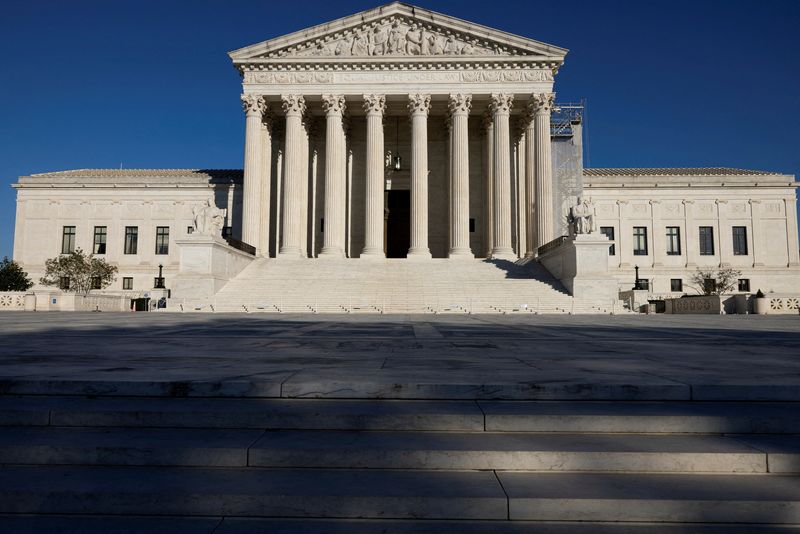
By Andrew Chung and John Kruzel
WASHINGTON (Reuters) – The U.S. Supreme Court is set on Tuesday to examine the extent to which federal agencies must review the environmental impact of projects they regulate in a dispute over a proposed railway in Utah that was challenged by environmental groups and a Colorado county.
The court will hear arguments in an appeal by a coalition of seven Utah counties of a lower court’s decision that halted the project and faulted the environmental impact statement issued by a federal body called the Surface Transportation Board in approving the railway.
The counties are seeking to construct an 88-mile (142-km) railway line in northeastern Utah to connect the sparsely populated Uinta Basin region to an existing freight rail network that would be used primarily to transport waxy crude oil.
The case tests the scope of environmental impact studies that federal agencies must conduct under a U.S. law called the National Environmental Policy Act, enacted in 1970 to prevent environmental harms that might result from major projects.
Companies and environmental groups are closely watching for the potential effect the case could have on infrastructure and energy projects.
The Surface Transportation Board, which has regulatory authority over new railroad lines, issued an environmental impact statement and approved the coalition’s proposal in 2021.
The dispute centers on the scope of environmental reviews under the law at issue, which mandates that agencies examine the “reasonably foreseeable” effects of a project. Environmental reviews that are too vast can add years to the regulatory timeline, risking a project’s viability and future infrastructure development, according to companies and business trade groups.
The Center for Biological Diversity and other environmental groups sued over the board’s decision to allow the project, as did Eagle County, Colorado, noting that the project would increase train traffic in its region and double traffic on an existing rail line along the Colorado River.
The U.S. Circuit Court of Appeals for the District of Columbia Circuit ruled in favor of the challengers in 2023, concluding that the environmental review inadequately analyzed the effects of increased oil production in the basin as well as downstream, where the oil would be refined.
Democratic President Joe Biden’s administration backed the railway coalition in the case, as did the state of Utah, urging the Supreme Court to overturn the lower court’s ruling.
The Justice Department said in a filing that the law at issue, as well as related regulations and Supreme Court precedents, “establish that an agency is not required to consider every environmental harm that the agency can reasonably foresee.”
In approving the railway, the board “drew a reasonable line in declining to undertake more detailed analysis of the upstream and downstream effects of oil and gas development,” the department added.
Colorado supported the project’s challengers, with the state saying in a filing to the Supreme Court that its economy is reliant on outdoor recreation, and that the railway project “raises the risk of leaks, spills or rail car accidents immediately adjacent to the headwaters of the Colorado River.” Fourteen other states also backed the challengers in the case.

Eight of the nine justices will hear arguments in the case. Conservative Justice Neil Gorsuch recused himself on Dec. 4, a move that came after some Democratic lawmakers urged his withdrawal from the case because businessman Philip Anschutz, a former legal client of the justice, has “a direct financial interest in the outcome.”
A ruling in the case is expected by the end of June.
This post is originally published on INVESTING.




